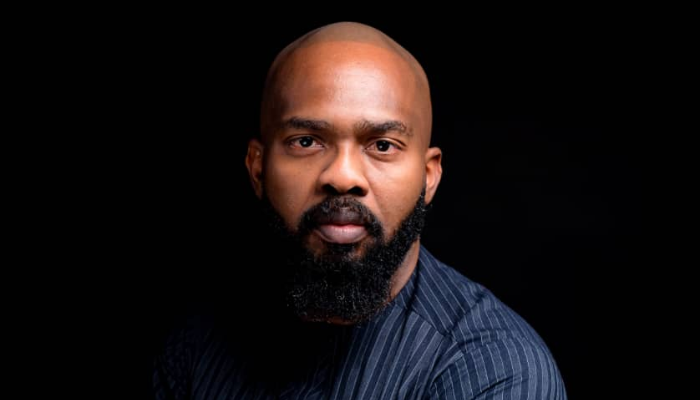For over two decades, Adegbe Ogbeh has been quietly shaping Nigeria’s hositality and business innovation scene — not through fanfare, but through consistency, resilience, and a clear sense of purpose.
A lawyer by training, Ogbeh has built a career that bridges the public and private sectors with remarkable dexterity. His ventures, from the premium Lounge One and Paper Hospitality to the social-impact tech platform Blessmi, reveal a man deeply invested in both profit and purpose.
“Our journey has always been about building systems — and learning equally from our wins and our mistakes,” he reflects.
From Courtrooms to Lounges: A Lawyer’s Unlikely Pivot
Ogbeh’s path to hospitality wasn’t plotted on paper; it was sparked by curiosity. His early interest in public-facing services — especially in government spaces like airports — drew him into what would become one of his most defining ventures.
“Lounge One started almost by accident,” he recalls with a smile. A casual conversation with a friend about an opportunity at the Abuja domestic airport became the seed for a business that would later expand into multiple airport lounges and pharmacies across Nigeria’s international terminals.
Paper Hospitality, on the other hand, was a more deliberate creation — a test of how the private sector could reimagine service and luxury in Nigeria’s capital.
“We wanted to build something in Abuja that we’d personally be proud of — something that reflects quality, innovation, and heart.”
A Sector on the Rise — and Its Hard Truths
Nigeria’s hospitality industry is in flux. With the naira’s weakness encouraging local tourism and social media amplifying the country’s appeal to the world, Ogbeh believes the projections for growth are realistic — but also demands patience.
“Private sector innovation and social media are doing the heavy lifting. But to really measure progress, we should re-evaluate by 2030.”
While investment in the sector has remained steady, he admits that consumer behavior has shifted, with reduced discretionary spending and tighter budgets. Still, he sees cautious optimism among investors betting on a strong rebound by 2026.
“Investors are positioning themselves for the recovery ahead — that’s where the confidence lies.”
Challenges Behind the Glamour
Running hospitality businesses in Nigeria is not for the faint-hearted. Ogbeh is candid about the pain points: high rent, unstable power supply, inflation, and staffing challenges.
“Inflation has touched every part of hospitality,” he says. “But with adaptability and resilience, we’ve learned to stay afloat and grow.”
He adds that the country’s cultural energy and natural warmth remain powerful assets — if supported by stronger legal frameworks and security improvements to protect both investors and workers.
“Nigeria has everything it needs to build a thriving tourism economy — it just needs protection, stability, and trust.”
Public-Private Partnerships: The Missing Link
For Ogbeh, the real game-changer will be strategic partnerships between government and private players.
“Public-private collaboration could transform the way Nigerians access public-facing services,” he explains. “From passports and permits to business registration — shared management models could raise service quality, boost efficiency, and increase national revenue.”
This model, he believes, can extend beyond hospitality — into civic systems that touch the everyday lives of Nigerians.
Blessmi: Tech with a Human Heart
Outside the hospitality sector, Ogbeh’s compassion for community empowerment comes to life through Blessmi, a digital fundraising platform that helps Nigerians raise money for medical, educational, and personal emergencies.
Born out of his experience in the soft-tech consumer space, Blessmi fills a crucial gap left by global crowdfunding platforms that many Nigerians cannot access.
“We wanted something homegrown and inclusive,” he says. “The response has been amazing, especially for health-related campaigns. Blessmi fills a void that international platforms have ignored.”
Building for Impact — and Profit
Ogbeh is clear about the balance between purpose and profitability.
“A healthy business is the best foundation for social impact. If your venture isn’t sustainable, it can’t support meaningful change.”
This philosophy underpins both his hospitality and tech ventures — ensuring that compassion never replaces commercial discipline.
Leadership Lessons from the Field
Over the years, Ogbeh has learned that partnerships and accounting are the two pillars of business survival.
“Many businesses fail not because of bad ideas, but because of poor accounting. It’s a silent killer,” he warns.
He also emphasizes the importance of real-world evaluation in hiring.
“CVs help, but performance on the job tells the real story. That’s how you build a team that shares your values.”
Scaling, he adds, is slow but possible with the right partners. “Our growth has been steady because we stand on multiple strong legs — and that makes all the difference.”
Looking Ahead
In the next five years, Ogbeh envisions Paper Hospitality expanding into at least two new African cities, while Lounge One establishes its footprint in four new airports, including one international location.
And as for Blessmi, the mission is just beginning.
“The level of need in Nigeria is immense. We must all contribute — in whatever way we can. We are, truly, each other’s keepers.”
Advice for the Next Generation
His advice to young entrepreneurs is as practical as it is timeless:
“Get an accountant — or borrow one. Without proper accounting, even the best idea won’t survive.”
Through his quiet leadership, Adegbe Ogbeh has proven that business success and social impact don’t have to be opposites — they can, and should, grow together.

